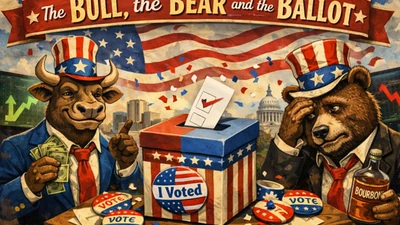Conservative investors focused on leveling the trade playing field face a dynamic week ahead, with tariffs pushing U.S. industries to innovate and reduce reliance on imports. After decades of trade deficits—$971 billion in goods in 2022—policies like tariffs aim to correct one-sided trade practices, fostering domestic manufacturing. Meanwhile, oil prices remain volatile, with Brent crude at $69.40 per barrel on July 20, 2025, down 2.91% month-over-month due to oversupply and weak demand. This guide outlines key events, their implications for fair competition, and strategies for investors prioritizing American economic sovereignty.
Monday, July 21, 2025: Manufacturing PMIs and Tariff Negotiations
- Key Events: U.S., India, Euro area, and UK Manufacturing PMIs. Updates on trade talks with 14 countries (e.g., Japan, South Korea) ahead of the August 1 tariff deadline.
- Why It Matters: Strong U.S. PMI data would signal tariffs are boosting domestic manufacturing, countering foreign competition advantaged by subsidies. Tariff pressure will drive America’s industries to step up with innovation in manufacturing, which will offset the reliance on imports. Progress in trade talks could stabilize markets by ensuring fairer terms, though unresolved tensions may sustain volatility.
- Investor Implications: Robust PMIs could lift industrials benefiting from domestic production. Volatile oil prices, driven by OPEC+ production increases of 411,000 barrels per day in June, may pressure energy stocks short-term but create opportunities for firms tied to U.S. manufacturing growth.
- Action: Increase exposure to industrials (e.g., Caterpillar, 3M) or ETFs like the PBC America First ETF (MAGA), which focus on pro-American trade policies. Monitor oil price fluctuations for energy sector entry points.
Tuesday, July 22, 2025: Corporate Earnings and Tax Policy Signals
- Key Events: Earnings from firms like Oracle (ORCL) or Nike (NKE), plus signals on extending the 2017 Tax Cuts and Jobs Act.
- Why It Matters: Earnings will reveal how tariffs are pushing firms to innovate domestically, reducing exposure to foreign supply chains. Tax cut extensions would enhance U.S. competitiveness, particularly for energy and financials, countering years of trade disadvantages. Oil price volatility, with Brent down 25% since January, reflects oversupply pressures, impacting energy firms’ margins.
- Investor Implications: Companies investing in U.S. manufacturing (e.g., energy, industrials) are best positioned to benefit from fair trade policies. Tax cuts could drive gains in sectors hurt by past trade imbalances.
- Action: Watch earnings for signs of reshoring or innovation. Add to financials (e.g., Goldman Sachs) or energy (e.g., ConocoPhillips) if tax cut momentum grows, but hedge energy exposure due to oil price volatility.
Wednesday, July 23, 2025: Retail Sales and Federal Reserve Stability
- Key Events: U.S. retail sales data and speculation about President Trump’s Federal Reserve stance.
- Why It Matters: Retail sales will show if tariff-driven price hikes are affecting consumers, a trade-off for reducing reliance on cheap imports. Stable Fed policy supports low interest rates, enabling firms to invest in manufacturing innovation. Oil prices, flat at $69 for Brent after a 1.5% weekly drop, could stabilize if demand holds.
- Investor Implications: Strong retail sales could lift consumer discretionary stocks (e.g., Home Depot), reflecting resilience. Fed stability supports growth-oriented policies, while volatile oil prices may create energy sector opportunities.
- Action: Pivot to consumer staples (e.g., Procter & Gamble) or utilities if retail sales weaken. Monitor Fed news, as volatility could affect yields and stock valuations.
Thursday, July 24, 2025: Tech Earnings and Debt Ceiling Talks
- Key Events: Netflix (NFLX) Q2 earnings, projecting 16% revenue growth, and debt ceiling negotiations ahead of the August “x-date.”
- Why It Matters: Netflix’s results will show tech’s response to tariffs, which push domestic innovation to reduce import reliance. Debt ceiling gridlock could raise Treasury yields, favoring value sectors like energy, especially if oil prices stabilize after recent declines.
- Investor Implications: Conservative investors may avoid firms like Netflix, favoring tech or industrials with U.S.-focused operations. Energy stocks could benefit from tariff-driven domestic production despite oil price volatility.
- Action: Assess tech for domestic innovation; favor firms like Oracle. Increase energy (e.g., ExxonMobil) or American Conservative Values ETF (ACVF) allocations if yields rise, but stay cautious of oil price swings.
Friday, July 25, 2025: Economic Data and Geopolitical Risks
- Key Events: Consumer confidence or housing starts data, plus geopolitical developments (e.g., Middle East, China maritime tensions).
- Why It Matters: Strong economic data would validate tariffs as a catalyst for U.S. manufacturing innovation, reducing foreign dependence. Geopolitical risks could cause oil price spikes, as seen in June when Brent hit $80, though oversupply keeps prices volatile, with forecasts at $66 for 2025.
- Investor Implications: Energy stocks could rally if geopolitical tensions lift oil prices, aligning with conservative goals of energy independence. Weak consumer confidence may signal tariff-related cost pressures.
- Action: Add to energy (e.g., Chevron) if oil prices spike, but diversify with staples or utilities if consumer data weakens, reflecting tariff cost impacts.
Strategic Considerations for Conservative Investors
- Tariffs and Innovation: Tariffs address trade imbalances, like the $419 billion U.S.-China goods deficit in 2022, by incentivizing U.S. manufacturing innovation. This reduces reliance on imports, strengthening sectors like industrials and energy.
- Oil Price Volatility: With Brent at $69.40 and forecasts predicting $66 in 2025 due to oversupply, energy investments require caution but offer opportunities if geopolitical risks drive short-term spikes.
- Value Alignment: ETFs like PBC America First (MAGA) and American Conservative Values (ACVF) prioritize firms supporting U.S. economic sovereignty, shielding investors from trade disruptions.
- Risk Management: Diversify with defensive sectors (e.g., utilities, staples) to manage volatility from tariffs, oil prices, or debt ceiling talks.
Conclusion: The week of July 21, 2025, offers conservative investors opportunities to align portfolios with policies that level the trade playing field and drive U.S. manufacturing innovation. By tracking PMIs, earnings, retail sales, and geopolitical risks, investors can capitalize on tariffs that correct one-sided trade practices. Despite volatile oil prices, domestic-focused companies and value sectors offer stability and growth potential. Consult a financial advisor to tailor strategies to your goals.










